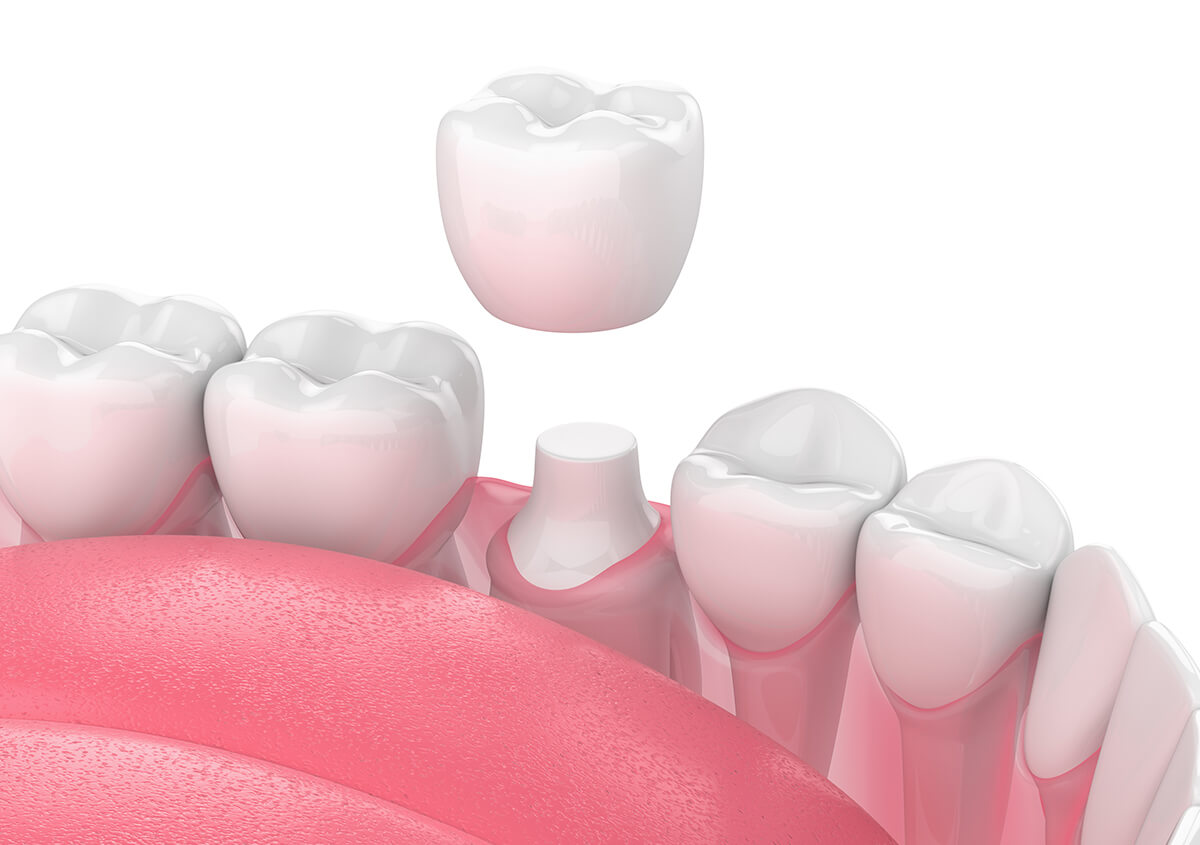
14
Mar
Can Dental Crowns Be Used For Issues With Your Front Teeth?

Dental crowns, also referred to by patients as caps, are a form of restoration that can serve many functions. If you have had a crown placed by a Chalfont, Pennsylvania, area dentist like Dr. Varvara Clark of Chalfont Dental Care, then you know they are strong, durable, and blend in seamlessly with your smile. Crowns are commonly placed on molars, but if you have an issue with a front tooth, you may wonder if dental crowns can also be placed over front teeth.
Let us look at some of the factors that can determine when placing a dental crown on the front teeth would be appropriate.
Why Place Crowns Over Front Teeth?
Here are some reasons a dental crown may be considered for your front teeth:
- Cosmetic Improvement: Dental crowns can effectively enhance the appearance of front teeth by addressing issues such as discoloration, cracks, chips, or irregularities. They provide a natural-looking restoration, as the materials used in modern crowns, such as porcelain, can be color-matched to blend seamlessly with the surrounding teeth, ensuring a cosmetically pleasing result
- Durability and Strength: Front teeth are essential for biting and play a prominent role in your smile. Dental crowns, especially those made from materials like porcelain-fused-to-metal or zirconia, offer durability and strength. These materials withstand the forces of biting and chewing, providing long-lasting support to front teeth that may be compromised due to decay, trauma, or structural damage
- Tooth Protection: Dental crowns act as a protective barrier for weakened or damaged front teeth. If a tooth has undergone extensive decay, a large filling, or a root canal treatment, a crown helps to stabilize and protect the tooth structure. This preventative measure ensures that the tooth remains functional and doesn’t further deteriorate
- Restoration of Functionality: Front teeth are crucial for biting, tearing, and speaking. Dental crowns restore the functionality of compromised front teeth, allowing patients to eat and speak without difficulty. The crowns are custom-designed to replicate the natural shape and alignment of the natural teeth, ensuring proper function and comfort
- Treatment of Cosmetic and Functional Issues: Dental crowns are versatile in simultaneously addressing cosmetic and functional concerns. Whether front teeth require aesthetic enhancement or structural support, crowns can serve a dual purpose, providing a comprehensive solution to various dental issues
Request An Appointment
Considerations and Limitations
There are specific considerations that need to be accounted for and limitations you should know about when discussing dental crowns for front teeth. These can include:
- Aesthetic Considerations: While modern dental crowns offer excellent aesthetics, the success of the outcome depends on factors like the skill of the dentist, the quality of materials used, and the overall design of the restoration. It’s essential to communicate your expectations with your dentist to achieve the desired cosmetic result
- Tooth Reduction: To accommodate a dental crown, a certain amount of tooth structure must be removed. This tooth reduction is a standard part of the crown preparation process. While it is generally a conservative amount, it’s crucial to weigh the benefits of restoration against the removal of natural tooth material
- Potential Sensitivity: Some individuals may experience temporary sensitivity after getting a dental crown, especially if a significant amount of tooth structure is removed during the preparation. This sensitivity typically subsides, but it’s essential to communicate any concerns with your dentist for appropriate guidance
- Cost Considerations: Dental crowns, particularly those crafted from high-quality materials, can be a significant investment. While they offer long-term benefits, patients should consider the financial aspect and explore any insurance coverage or payment plans that may be available
To learn more about dental crowns in the Chalfont, PA area, please reach out to Dr. Varvara Clark and the team at Chalfont Dental Care by calling (215) 826-3282.
